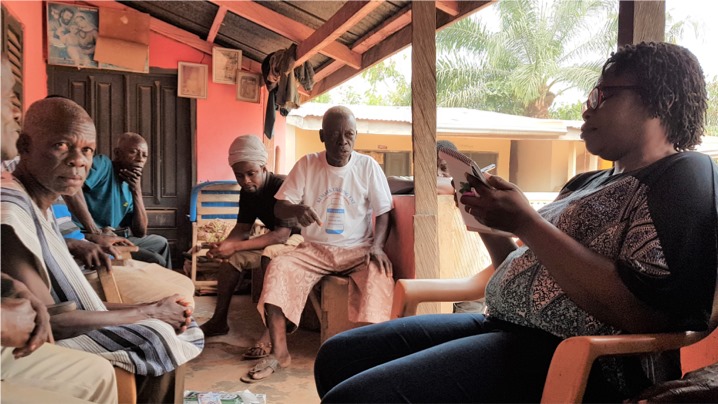Webinar: Mitigating social and environmental harm through Participatory Theatre
Posted on 11 September 2020

Prof. Paul Kerswill (Dept. Language and Linguistic Science) in collaboration with Margaret Ismaila (University of Ghana) on Friday 31st July 2020 presented a webinar on 'Mitigating social and environmental harm through Participatory Theatre: case study from artisanal and small-scale gold mining in Ghana'.
The webinar is part of the Language and Sustainable Development Webinar Series that brings together leading researchers to highlight the breadth of innovative language-based research being conducted in relation to sustainable development. The aims of the series are to 1) showcase the ways in which language/linguistics can contribute towards sustainable development and 2) provide practical guidance for linguists who might want to get involved in this type of research.
Paul Kerswill and Margaret Ismaila’s presentation illustrated their results and experiences in setting up an interdisciplinary study combining environmental science, participatory theatre, sociolinguistics and development – using both qualitative and quantitative methods. The focus of the project is on artisanal and small-scale gold mining (ASGM) in Ghana, a major industry employing over a million people, but causing widespread environmental, social and health-related harms. In the project it was decided that Participatory Theatre (PT) should be used. This methodology involves the generation of a play by local people who are invited to take up issues of concern to them. The play is guided by a facilitator until a final, though still flexible, form is arrived at. Audience engagement is central, and allows for judgements to be openly expressed about the rights and wrongs of particular actions; from this, a reflective approach to the issues emerges among the participants and audience.
So far, it has only been possible to complete the first stage, because of the pandemic-related lockdown. But the first stage, in which we established face-to-face contacts, demonstrated the importance of utilising the existing structures in a community, to gain leaders’ confidence and to make the project acceptable across a broad base.
"It's great seeing the kind of difference Participatory Theatre can make, and to observe the sensitive use of language by participants. We very much hope to be able to complete this project in the near future." - Prof. Paul Kerswill, Dept. Language and Linguistic Science.
"Participatory Theatre has remained a platform where the silent voices in communities are heard. Here, boundaries are broken for a discussion on delicate and complex issues for collective action. It is our hope that this project will offer the same opportunity to the people of Kwabeng and Asunafo when completed” - Margaret Ismaila, University of Ghana
For info, abstract and to watch the recording of the webinar: Mitigating social and environmental harm through Participatory Theatre webinar
To read more about the project: Participatory theatre in Ghana: initial workshop and field visit
